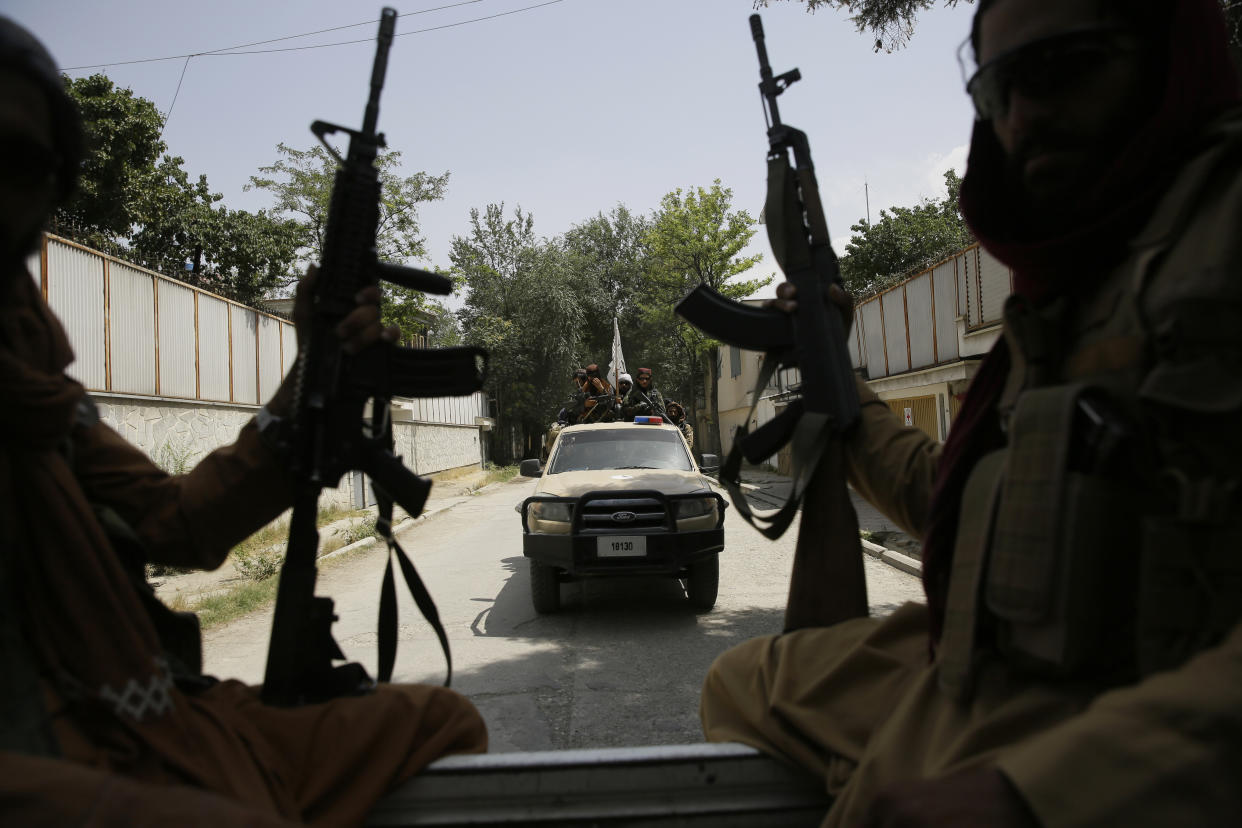Afghan woman scholar who came to U.S. days before Kabul fell mourns 'generation of change'
A young Afghan woman was trying to settle into her new life at a Massachusetts university when she heard the news that her home city of Kabul had fallen to the Taliban.
She attempted to book a flight back home but soon realized there were no flights.
“It all happened so quickly,” she said. She arrived in the United States on Aug. 9, days before the militant group claimed major provinces and cities — including Helmand and Kandahar — and just over a week before Taliban fighters declared victory in Kabul’s presidential palace.
Now the 26-year-old, who asked for her name to be anonymized, has mixed feelings about studying for a master's degree, which she won a Fulbright scholarship to attend. With the militant Taliban regime back in power, it is likely that women and girls in Afghanistan could be denied education again.
“From an outsider point of view, it looks like I got lucky and I came here for my studies and now I’m safe,” she told Yahoo News, “but it’s a certain feeling of guilt … leaving my family and friends and everyone that I knew in Kabul behind.”
The return of the Taliban regime marks an end to almost 20 years of the presence of a U.S.-led coalition in Afghanistan.
During that time, the woman and others of her generation began to rebuild their lives, and some of their country, including the capital, Kabul, began to acquire some of the characteristics of a modern society. Women were allowed to study and work, both of which were restricted when the Taliban last held power, prior to the 2001 U.S. invasion.
“I feel humiliated, because my generation was a generation of resilience and hope. But they are now trapped in the corners of their home, waiting for fate to see what the Taliban will do,” she said.
Her comments echo the concerns of other young Afghans who had been working to bring some stability to the war-ravaged nation, and who campaigned for years for equality for Afghan women and girls.

“The situation is soul-crushing, the whole experience of bringing change to the Afghan society,” she said. “I felt like [the Taliban takeover] was a slap on the face. I felt really courageous back in Kabul, when we counted ourselves as the generation of change and the generation that was really resilient. But then [the Taliban] came back, and so did the memory of brutality and the violence.”
During their previous rule in Afghanistan, between 1996 and 2001, the Taliban introduced strict rules and punishments under their interpretation of Sharia, or Islamic law. Sharia acts as the fundamental religious moral code of Islam, with holistic rules that apply to all areas of life, including religious obligations, daily routines and personal beliefs.
Women had to wear the all-covering burqa, girls age 10 and over were prohibited from going to school, and women who went out unaccompanied in public places could face beatings.
The woman was a small child when the Taliban were last in power. Her family fled Afghanistan and settled as refugees in Iran, where she received some basic level of education.
She returned to Afghanistan when she was 10 and witnessed the Taliban’s legacy firsthand. Her family settled in a remote village in the central highlands, which was deprived of government or international assistance.

“When I went there, there was no school,” she said. “I was the most educated girl in the village and had only studied in fifth grade back in Iran.”
Because she was the most educated, she began teaching the younger girls, most of whom, she said, have now finished their master's degrees.
“Now seeing women not having this chance [for education] really is heartbreaking, because I think education changed my life,” she said.
The woman, who formerly worked as a researcher in Kabul documenting the atrocities of Taliban fighters on women, also credited U.S.-led programs for her ability to excel at school.
Her fear is that now, without a U.S. presence, those initiatives will be limited or will end, depriving other girls of the opportunities she was given.
“The reason I talk English to this extent is because I was part of the micro-scholarship of the U.S. Embassy to learn English,” she said. “I’m not sure if it would be possible under a Taliban regime. In Afghanistan, we had the basis of women's empowerment, but we just needed more time.”
____
Read more from Yahoo News:


